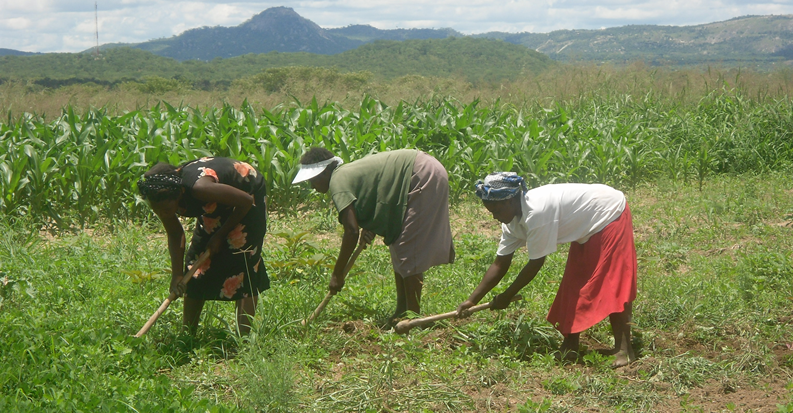By Joyce Mukucha
Climate change is one of the 21st century human catastrophes with its impacts being felt globally and Zimbabwe has not been spared.
These impacts range from increased rainfall variability, prolonged dry spells, heat waves, as well as increased occurrence of extreme weather events such as drought and flooding.
The small-scale farmers in Zimbabwe decry the absence of long-term adaptation measures with climate change creating a state of vulnerability to climate impacts in their communities with their farming projects being the worst affected.
Different small-scale farmers who spoke to this publication stressed that there was an urgent need for Government to put in place measures and adaptation plans to the impacts of climate change in order to safeguard the future.
According to the Zimbabwe National Adaptation Plan (NAP) Briefing Note of 2019, Zimbabwe is vulnerable to climate change which affects various sectors such as agriculture, water, energy, built infrastructure, transport, and economic development.
In an interview, one of the farmers in Beatrice, Mr. Takura Musanhu who relies on farming said there was a need for Zimbabwe to enact various policies, strategies, and action plans that guide climate change adaptation.
He explained that farming was his only source of income and urged Government and other stakeholders to take practical actions to manage risks from climate impacts, protect communities, and strengthen the resilience of the economy.
“Climate will exacerbate existing vulnerabilities in our country. For us small scale farmers, we feel the impact. I specialize in growing small grains and sell them to the market for the sustainability of my family but whenever climatic conditions keep changing, the outcome of my projects is also disturbed as well. If not properly dealt with, climate change will worsen already existing challenges that developing countries face, and we, the small scale farmers will suffer a lot,” he said.
Another Gutu based farmer, Mrs Olgadencia Muneripi who spoke to Spiked Online Media highlighted that there was a need for policymakers to provide an oversight role on the implementation of programmes and project under the ministry responsible for climate change.
“Policymakers should be responsible for the formulation of laws that support climate change and climate change adaptation. There is also a need for researchers to define methodologies for assessing vulnerability and determining the country’s various sectors’ short, medium and long term adaptation needs,” said Muneripi.
She also pointed out that climate change was not only affecting small-scale farmers but also hindering the attainment of Sustainable Development Goals and affecting women and girls too especially those who reside in remote, rural areas.
Women, she indicated, bear the brunt of climate change as they are traditionally responsible for fending for children, fetching food, water, and firewood as well as taking care of the vulnerable.
“There is need for the formulation of sector strategies because they are critical to highlight the impacts of climate change from the viewpoint of a particular sector, set sector-related priorities, and promote investments to reduce climate-related impacts and vulnerability in its domain of interventions,” said another Mwenezi based small scale farmer who is also a volunteer in climate adaptation work in the community.
In its Zimbabwe NAP Briefing Note of 2019, the Climate Change Department states that in response to the climate challenges, Zimbabwe enacted various policies and strategies to guide climate change adaptation. These include the National Climate Policy, National Climate Change Response Strategy, Nationally Determined Contributions, and the Climate Smart Agriculture Manual for Agriculture Education in Zimbabwe among others.
The main thrust of these action plans is aimed at building adaptative capacity and resilience and to facilitate the integration of climate change adaptation in a coherent manner, into relevant new and existing policies, programmes and activities and activities, in particular development planning processes and strategies, within all relevant sectors and different levels as appropriate.






